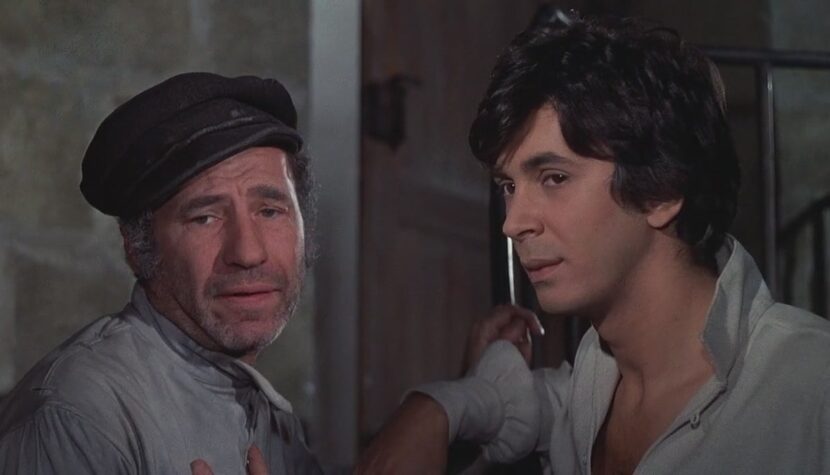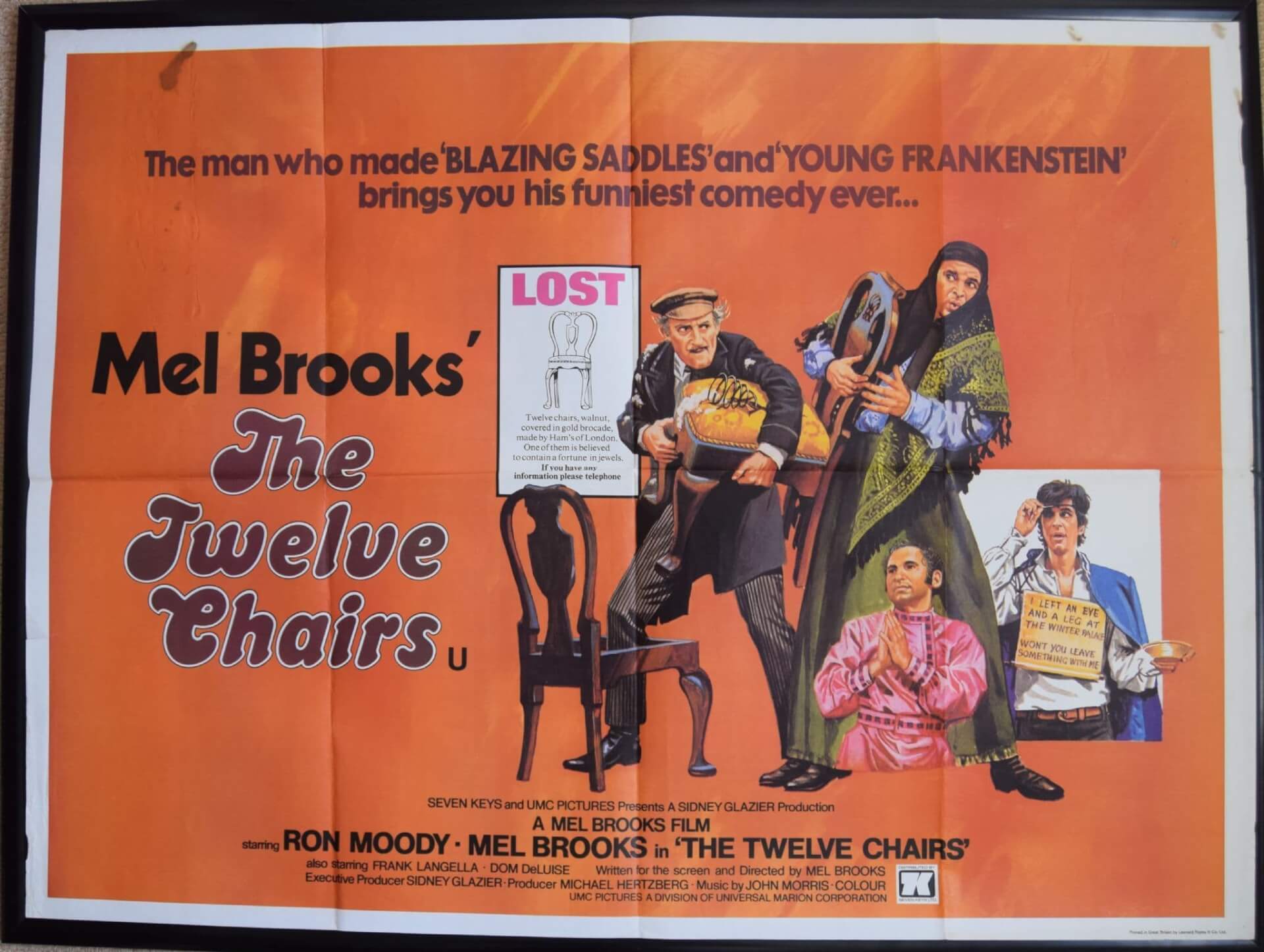THE TWELVE CHAIRS: The Unjustly Forgotten Film by Mel Brooks

Mel Brooks (actually Melvin Kaminsky) inscribed himself on the pages of film history with golden letters already through his first work. “The Producers” from 1968 earned him an Oscar for the screenplay. The story of a failed Broadway producer who, along with a young accountant, decides to stage a flop (“Springtime for Hitler”) and disappear with the money, sparkles with brilliant humor and vivid performances by Zero Mostel, Gene Wilder, and Kenneth Mars. It’s no wonder that people eagerly awaited another film from his hands.
Brooks presented this two years later. This time he was inspired by Russian literature, specifically the novel “The Twelve Chairs” written by Eugeny Petrov and Ilya Ilf. The action begins in post-revolutionary Russia, in 1923. The plot revolves around the search for the titular twelve chairs, in which a certain noblewoman hid her precious family jewels out of fear of the Bolsheviks. On her deathbed, she reveals this secret to her son, Ippolit Vorobyaninov (Ron Moody). Soon, the news reaches the dying woman’s confessor, Father Fyodor (the excellent Dom DeLuise), and the sympathetic conman Ostap Bender (Frank Langella). A race to find the chairs ensues, which won’t be easy considering the furniture has been confiscated by the Soviet authorities.

The characters, constantly deceiving each other, traverse the chaotic country, trying to ascertain the whereabouts of the chairs. The whole story is a fantastic comedy of errors, with the three main characters presenting different human attitudes (of course, portrayed in a satirical light): Moody shines as the greedy Vorobyaninov, Frank Langella embodies the cunning and eloquent, yet somewhat charming rogue Ostap Bender, and Dom DeLuise (a frequent collaborator of the director from this film onward) masterfully portrays the likable yet dishonest Father Fyodor. Just the appearance of the clergyman on screen is enough to disarm and amuse with his gestures, expressions, and intonation.
Brooks’ “The Twelve Chairs” is not the first attempt to bring this story to the silver screen. The popular Russian book has been adapted into films several times. The American director’s version is relatively faithful to the original, although not without some changes, such as the ending, which in the text carries a much more somber tone (though toned down later by the authors themselves in the sequel novel, “The Golden Calf”). I must admit that the film adaptation of “The Twelve Chairs” is much better to me than its literary precursor.
It’s worth noting that the portrayal of post-revolutionary Russian daily life on screen has been somewhat softened compared to reality. Rather than focusing on brutal purges or human tragedies, the film emphasizes chaos and bureaucratic absurdities (such as a special department of the secret police dealing with confiscated furniture). Naturally, something exotic to Americans will be more familiar and tangible to us due to our geographical location, cultural proximity, and shared history.
The film introduces a song written by Mel Brooks, “Hope for the best, expect the worst,” stylized after Russian folk songs. The director had a penchant for musicals (he flirted with Broadway, after all) and included similar musical interludes in most of his films (of which he directed eleven). However, unlike Brooks’ other titles, “The Twelve Chairs” seems somewhat forgotten. Unjustly so, because here we find all the characteristic maneuvers of the director, both comedic and narrative. The film is a kind of meta-continuation of “The Producers” – there, the creator mocked the Nazis and the Hitler regime, while here, the target is the Bolsheviks and communism.
It’s worth giving “The Twelve Chairs” a chance to confront the vision of the American director (with Polish-Jewish roots) with our “local” perception of those times. I blindly trust Brooks and will always recommend his work.
Written by Piotr Zymelka

